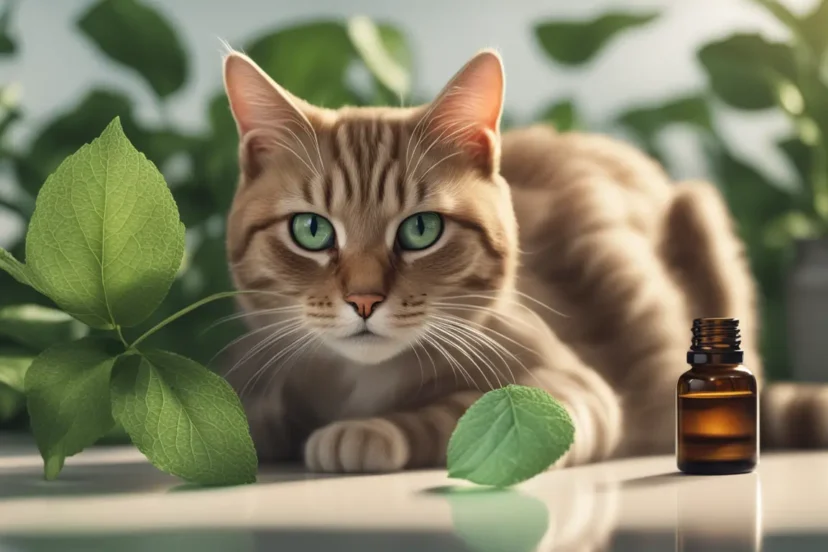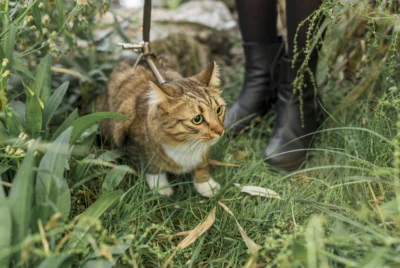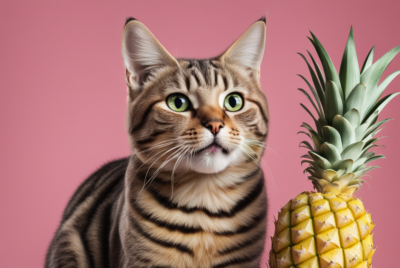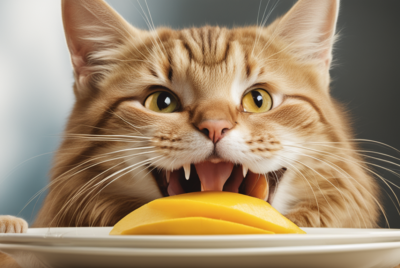Is Peppermint Oil Safe for Cats? Protecting Your Feline Friend
Cat owners love their feline friends and want to create a safe and healthy environment for them. Many people turn to essential oils for alternative medicine or home air freshening. However, essential oils, including peppermint oil, can be highly toxic to cats.
The Dangers of Essential Oils for Cats
Essential oils are concentrated liquids extracted from plants. While they may offer certain benefits for humans through aromatherapy, these potent substances pose a significant risk to cats. Unlike humans, cats lack specific enzymes needed to break down the chemicals found in many essential oils. This inability to metabolize these chemicals can lead to serious health problems.
Understanding Essential Oil Toxicity in Cats
Cats are naturally curious creatures and may be drawn to the pleasant smells of essential oils. Unfortunately, even a small amount of ingested, inhaled, or absorbed essential oil can be toxic.
Phenolic compounds, found in many essential oils, are particularly harmful to cats. These compounds can irritate the skin, eyes, and respiratory system. In severe cases, they can damage the liver and lead to liver failure.

Risks of Diffused Peppermint Oil
It’s important to remember that danger doesn’t come solely from ingesting peppermint oil. When you diffuse essential oils, it releases tiny oil particles into the air, which cats can inhale. These inhaled particles can irritate the lungs and cause respiratory distress.
Additionally, cats groom themselves frequently, and diffused oil particles can settle on their fur. When they groom, they ingest the oil, leading to the same health risks as direct ingestion.
Symptoms of Peppermint Oil Poisoning in Cats
If your cat is exposed to peppermint oil, it’s crucial to be aware of the potential symptoms. Early detection and treatment can make a significant difference in their recovery. Here are some common signs of peppermint oil poisoning in cats:
- Vomiting
- Diarrhea
- Drooling
- Loss of appetite
- Lethargy
- Difficulty breathing
- Skin irritation
- Tremors or seizures
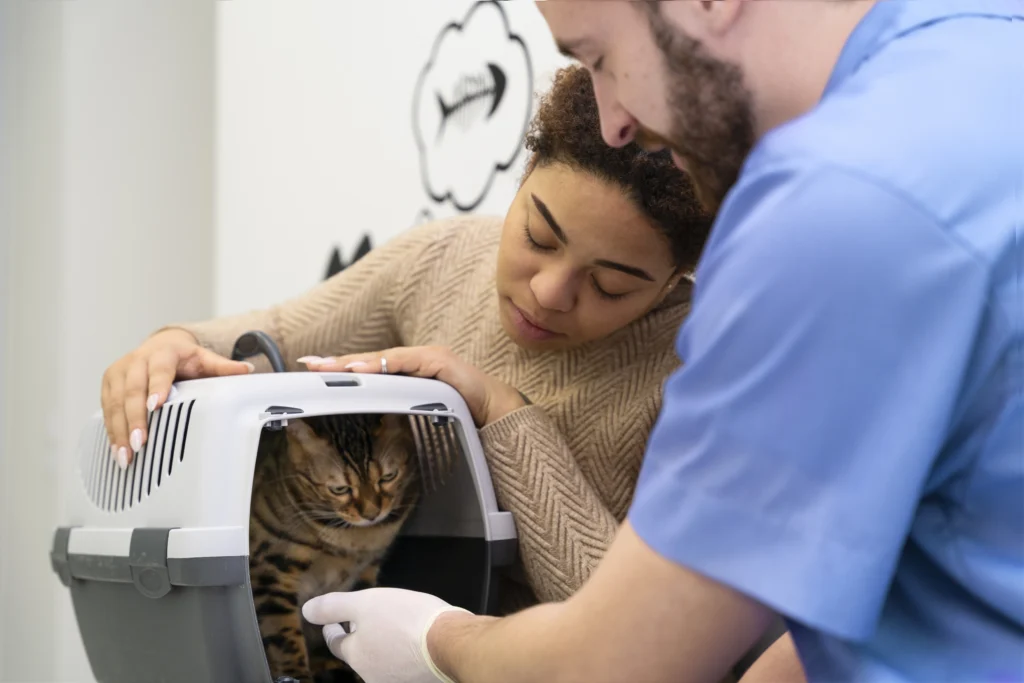
Treatment Options for Cat Essential Oil Poisoning
The treatment for cat essential oil poisoning will depend on the severity of exposure and the specific symptoms your cat exhibits. Here’s what you might expect:
- Decontamination: If your cat has recently ingested peppermint oil, the veterinarian may induce vomiting or perform gastric lavage to remove any remaining oil from the stomach. This should only be done by a professional to avoid further complications.
- Activated Charcoal: In some cases, veterinarians may administer activated charcoal to help absorb any remaining toxins in the digestive system.
- Intravenous Fluids: To prevent dehydration caused by vomiting and diarrhea, intravenous fluids may be administered.
- Supportive Care: Depending on the severity of the poisoning, your veterinarian may recommend hospitalization with supportive care to monitor your cat’s vital signs and organ function.
Are There Any Cat-Friendly Essential Oils?
While there’s limited research on truly cat-safe essential oils, exercising great caution is crucial. Some sources suggest that certain diluted essential oils, like diluted lavender oil, might be tolerable for cats under strict supervision and only after consulting a veterinarian.
However, it’s important to remember that even these supposedly “safe” oils can be irritating or toxic depending on the individual cat and the amount of exposure.
Safe Air Freshening Solutions for Cat Homes
There are many safer alternatives to essential oils for freshening your home when you have a cat. Here are some cat friendly essential oils as options:
- Open windows for natural ventilation.
- Use odor-eliminating sprays specifically designed for pet homes.
- Invest in air purifiers that remove allergens and odors.
- Opt for natural odor absorbers like baking soda or white vinegar.
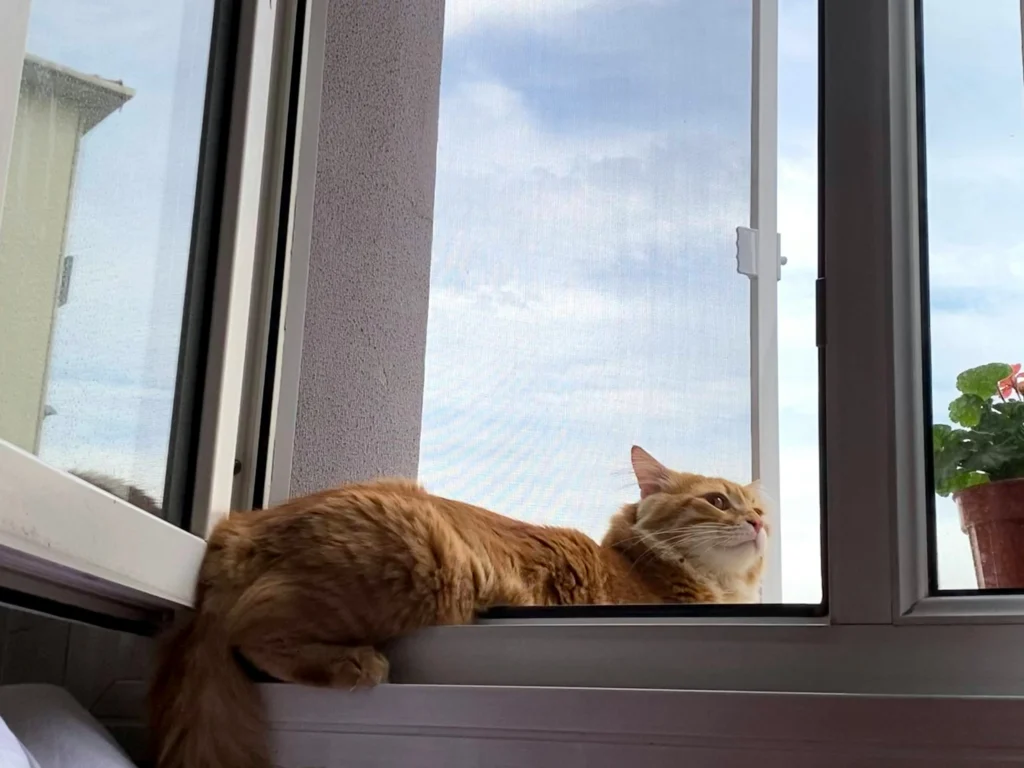
Essential Oil Use Around Curious Cats: Exercise Caution
If you choose to use essential oils in your home, even for personal use, it’s critical to take precautions to protect your cat. Here are some safety tips:
- Store essential oils securely out of reach of your cat.
- Never leave essential oil diffusers unattended.
- Avoid using essential oils in rooms where your cat spends a lot of time.
- If using essential oils topically, never apply them directly to your cat’s skin.
Always Exercise Caution with All Essential Oils
Even though certain essential oils are considered safe for humans, they are not necessarily cat friendly essential oils. Before using any essential oil in your home, thoroughly research its potential toxicity to cats.
Remember, “safe for humans” doesn’t always translate to “safe for pets.” Some of these essential oils are Thyme oil, Sweet birch oil, Citrus oil, Lavender oil and Wintergreen oil.
Also read: Is Incense Harmful to Cats? What Pet Owners Should Know
What to Do if Your Cat Ingests Peppermint Oil
- Immediately remove your cat from the source of the oil. This could be a diffuser, spilled bottle, or any other area where they might have come into contact with it.
- Contact your veterinarian or a pet poison control hotline right away. Provide them with as much information as possible, including the type and amount of essential oil ingested (if known), and the time of ingestion.
- Do not induce vomiting unless specifically instructed by a veterinarian. Inducing vomiting can be dangerous for cats and may worsen their condition.
- Follow the veterinarian’s instructions carefully. They will advise on the best course of action based on your cat’s specific situation.
Making Informed Choices for Your Cat’s Safety
By being aware of the dangers of peppermint oil and other essential oils, you can make informed decisions to protect your cat’s health. Remember, a little extra caution goes a long way in ensuring your feline friend thrives in a safe and healthy environment.

Other Toxic Essential Oils for Cats
While peppermint oil is a specific concern, it’s important to be aware that many other essential oils pose similar risks to cats. Here’s a non-exhaustive list of some commonly used essential oils that are toxic to cats:
- Tea tree oil
- Eucalyptus oil
- Citrus oils (lemon, lime, orange, grapefruit)
- Wintergreen oil
- Cinnamon oil
- Clove oi
- Melaleuca oil (tea tree oil)
- Birch oil
Living with Cats and Avoiding Essential Oil Risks
Cats are naturally curious and explore their surroundings with their noses. This inquisitive nature makes them especially vulnerable to essential oil exposure. Here are some additional tips to minimize risks:
- Avoid using liquid potpourri products, which often contain concentrated essential oils.Be mindful of fragranced candles, dryer sheets, and cleaning products that might contain essential oils. Choose pet-safe alternatives whenever possible.
- Opt for natural flea and tick control methods that don’t involve essential oils.
The Feline Respiratory System and Essential Oil Dangers
A cat’s respiratory system is particularly sensitive to certain essential oils. Inhaled oil particles can irritate the lungs and airways, leading to breathing difficulties. This is why diffusing essential oils is especially dangerous for cats, even if they don’t ingest the oil directly.
Prioritizing Your Cat’s Well-Being
Your cat’s safety and well-being should always come first. By understanding the dangers of peppermint oil and other essential oils, you can create a loving and healthy home environment for your feline companion.
Explore safe alternatives for air freshening and prioritize natural ventilation whenever possible. When in doubt, always consult your veterinarian for guidance on essential oil safety around your cat.
Also read: Are Air Plants Safe for Curious Cats?

